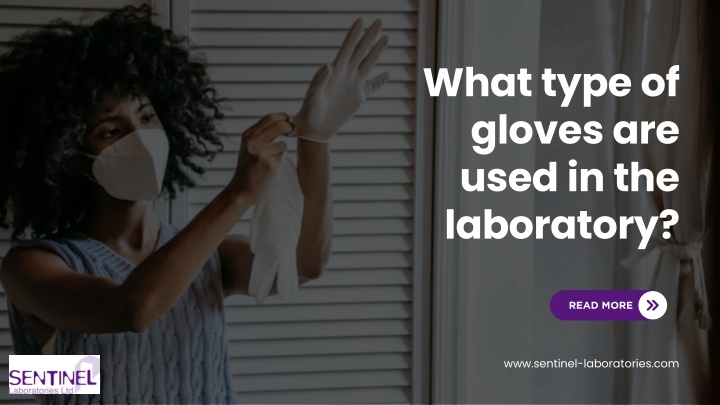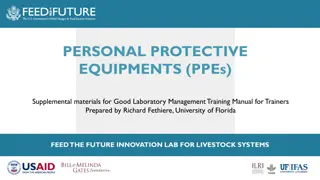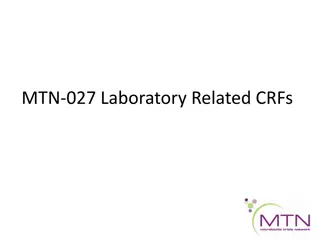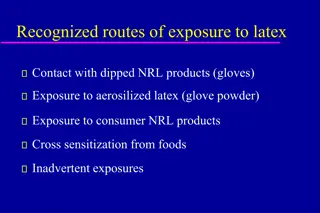What type of gloves are used in the laboratory?
Attention to detail in scientific research and experimentation is crucial, and that includes selecting the right gloves for the lab. The gloves are vital for maintaining a sterile and safe environment, and different types of gloves are tailored to sp
Download Presentation

Please find below an Image/Link to download the presentation.
The content on the website is provided AS IS for your information and personal use only. It may not be sold, licensed, or shared on other websites without obtaining consent from the author.If you encounter any issues during the download, it is possible that the publisher has removed the file from their server.
You are allowed to download the files provided on this website for personal or commercial use, subject to the condition that they are used lawfully. All files are the property of their respective owners.
The content on the website is provided AS IS for your information and personal use only. It may not be sold, licensed, or shared on other websites without obtaining consent from the author.
E N D
Presentation Transcript
What type of gloves are used in the laboratory? www.sentinel-laboratories.com
About Us In scientific research, attention to detail is crucial, including the selection of gloves for lab personnel. When it comes to gloves suppliers, laboratories have a wide range of options. Each type of glove is tailored to specific needs, ensuring optimal protection and dexterity for the tasks at hand. This PPT explores glove selection for different lab applications.
Surgical Gloves Surgical gloves, commonly used in laboratories, provide barrier protection against biological hazards. They come in latex or nitrile, sterile or non-sterile options, meeting various laboratory requirements. Disposable Gloves Disposable loves made of latex, nitrile, or vinyl offer a cost-effective safety solution for tasks needing frequent changes or handling hazardous materials in laboratories. Distributors are crucial for maintaining a fresh and steady supply of gloves to ensure safety and hygiene. Chemically Resistant Gloves Specialized chemically resistant gloves made of materials like butyl rubber, neoprene, or Viton are crucial for researchers working with harsh chemicals. These gloves provide superior resistance to various chemical compounds, ensuring the safety of laboratory personnel.
Cryogenic Gloves Cryogenic gloves are essential for labs handling very low temperatures in cryogenic research, protecting hands with materials like Kevlar to prevent injuries like frostbite, with suppliers offering different temperature range options. Cut-Resistant Gloves Cut-resistant gloves made of materials like stainless steel mesh or Kevlar offer protection in labs handling sharp objects. Distributors provide a range of gloves to meet lab safety needs, enabling precise work while ensuring personnel safety.
Glove Selection and Use Choosing the right gloves for a laboratory is essential for safety, experiment integrity, and regulatory compliance. Suppliers offer diverse options for labs to create a secure environment, promoting research advancement and staff well-being.
When choosing a glove material, consider three properties: Breakthrough time: The time it takes for the chemical to travel through the glove material. Permeation Rate: The time it takes for the chemical to pass through the glove once a breakthrough has occurred, involving absorption, migration, and de-absorption of the chemical. Degradation rating: The physical change that occurs to the glove material as it is affected by the chemical, such as swelling, shrinking, hardening, or cracking. Gloves is the real deal! I recommend gloves to everyone interested!
Hazard Level and Glove Material Low hazard: For incidental chemical contact (occasional drip or splash), excluding corrosives, toxins, or materials that readily penetrate the skin, disposable nitrile gloves are appropriate for most laboratory tasks. Moderate-High hazard: When handling corrosive, toxic chemicals that can penetrate the skin, use gloves resistant to chemical permeation. Refer to the manufacturer's glove selection charts for suitable materials.
By following these guidelines and selecting the appropriate gloves for each task, laboratories can maintain a safe and controlled environment, fostering scientific advancement while prioritizing the well-being of their staff. Protect your lab with premium gloves from Sentinel Laboratories. Explore their range of gloves including surgical, disposable, chemically resistant, cryogenic, and cut- resistant options. Industry experts help choose the right gloves for your lab needs, ensuring safety and research integrity. Trust Sentinel Laboratories for high-quality glove solutions.
Get in Touch with Us Phone Number Location Email
Thank You! www.sentinel-laboratories.com























